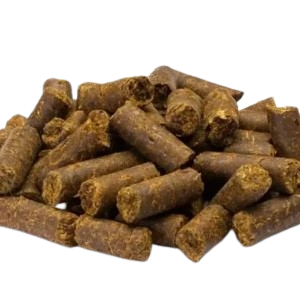Harnessing the Nutritional Power of Sunflower Meal Pellets in Livestock Nutrition

Introduction:
Sunflower meal pellets have emerged as a valuable and sustainable feed ingredient in the livestock industry, offering a nutrient-rich alternative for optimizing animal nutrition and performance. Derived from the oil extraction process of sunflower seeds, these pellets are packed with essential nutrients and boast numerous health benefits for livestock. In this article, we explore the nutritional composition, advantages, applications, and considerations associated with sunflower meal pellets, highlighting their importance in modern livestock nutrition strategies.
Nutritional Composition:
Sunflower meal pellets are prized for their exceptional nutritional profile, making them an invaluable source of essential nutrients for livestock. Rich in protein, they provide a high-quality amino acid profile necessary for muscle development, growth, and overall animal health. Additionally, sunflower meal pellets are a significant source of dietary fiber, promoting digestive health and improving nutrient absorption in animals. They also contain essential vitamins, minerals, and fatty acids, contributing to overall well-being and productivity in livestock.
Advantages for Livestock:
Incorporating sunflower meal pellets into livestock diets offers numerous advantages for animal health and performance. Firstly, their high protein content makes them an ideal supplement for meeting the protein requirements of animals, particularly during critical growth stages, gestation, or lactation. The balanced amino acid profile of sunflower meal pellets supports optimal muscle development, immune function, and reproductive performance in livestock. Moreover, their fiber content aids in maintaining gastrointestinal health, reducing the risk of digestive disorders, and enhancing nutrient utilization.
Applications in Livestock Feeding:
Sunflower meal pellets find versatile applications in livestock feeding across various species, including dairy and beef cattle, poultry, swine, and aquaculture. They can be incorporated into complete feed formulations or used as a protein-rich supplement to balance diets deficient in essential nutrients. Sunflower meal pellets are commonly included in rations for dairy cows to enhance milk production and composition, as well as in poultry diets to support healthy growth and egg production. They are also utilized in swine and aquaculture diets to optimize growth performance and feed efficiency.
Considerations and Best Practices:
While sunflower meal pellets offer numerous benefits, it is essential to consider certain factors when incorporating them into livestock diets. Proper storage conditions should be maintained to preserve the nutritional quality of the pellets and prevent spoilage. Additionally, sunflower meal pellets may contain anti-nutritional factors such as tannins and phytates, which can affect nutrient absorption in animals. Employing appropriate processing techniques, such as heat treatment or enzymatic treatment, can help mitigate the presence of anti-nutritional factors and enhance the digestibility of sunflower meal pellets.
Conclusion: Sunflower meal pellets represent a valuable and sustainable feed option for optimizing livestock nutrition and performance. With their exceptional nutritional composition, versatility in livestock feeding, and potential for enhancing animal health and productivity, sunflower meal pellets play a crucial role in modern livestock production systems. As we continue to prioritize efficiency, sustainability, and animal welfare in livestock farming, sunflower meal pellets offer a promising solution for meeting the nutritional needs of livestock while maximizing resource utilization and minimizing environmental impact.
